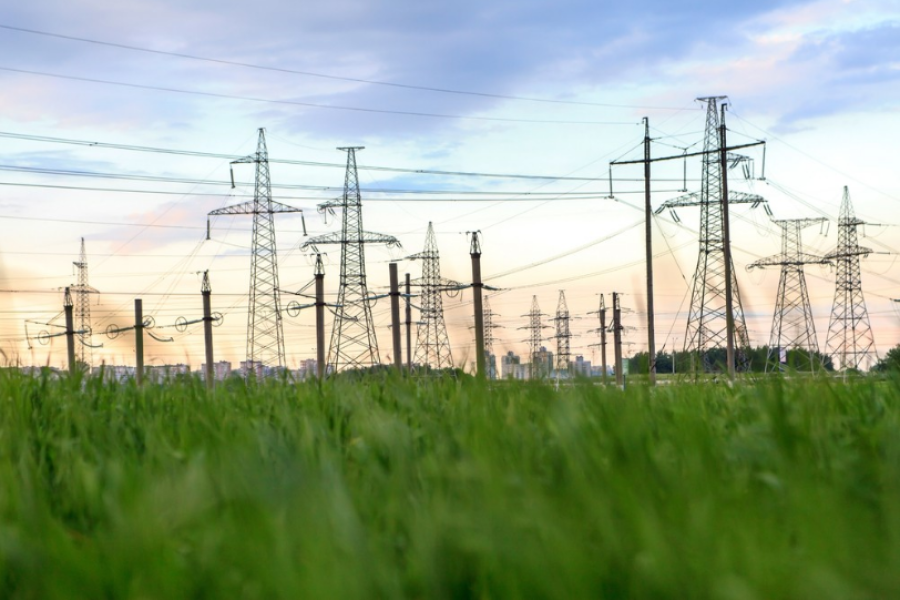Money
Electricity authority looking for new contractor to build transmission line
The 74-kilometre Hetauda-Bharatpur transmission line will facilitate electricity trade with India.
Prahlad Rijal
The Nepal Electricity Authority has invited global bids for the construction of the 220 kV Hetauda-Bharatpur power line, four months after terminating the deal with the original contractor for poor performance.
The state-owned power utility is the implementing agency for the multimillion-dollar Nepal-India Electricity Transmission and Trade Project, of which the 74-kilometre Hetauda-Bharatpur transmission line is a component.
“The contractor will be required to commission the transmission line within 15 months from the date of the agreement, and it must have experience in installing and commissioning 220 kV or higher voltage lines of at least 75 kilometres in length,” said the Nepal Electricity Authority. “The deadline for submitting bids is November 18.”
Last May, the Nepal Electricity Authority terminated the contract with Indian company ICOMM Tele and confiscated the $3.57 million performance deposit.
The Nepal Electricity Authority and ICOMM Tele had entered into an agreement in 2011 to construct the Hetauda-Bharatpur transmission line at a cost of around $10 million with the completion date set for 2016.
The Indian company had erected only 119 pylons out of the required 226 even after the completion deadline had been extended to 2018, which prompted the Nepal Electricity Authority to cancel the contract.
The power line scheme, with an estimated cost of $182 million, is being built with a $99 million concessional loan from the World Bank’s International Development Association and government funding.
The multilateral lending agency, which has termed the project’s progress moderately satisfactory, had disbursed $84.38 million as of September 2019.
As per the World Bank, the closing date for the original project and additional financing was first extended from December 31, 2016 to June 30, 2018, taking into consideration disruptive impacts caused by the earthquake in 2015 and trade disruption in 2016.
And owing to delays caused by firing of multiple contractors, the deadline was extended for the third time with the closing date set for April 30, 2020.
The transmission and trade project, to which the government has also accorded priority in this fiscal year’s budget, has five components including a 288-kilometre 400 kV Hetauda-Dhalkebar-Inaruwa transmission line, 220 kV substations in Dhalkebar, Hetauda and Inaruwa, and a 140-kilometre 220 kV Hetauda-Bharatpur-Bardaghat transmission line.
According to an official close to the situation, delays in work execution has vexed World Bank officials. They told Province 3 Chief Minister Dormani Paudel and the power utility’s Managing Director Kulman Ghising during a meeting that the agency would not extend the project beyond April 2020 as it had ‘hit the limitation’.
“Due to poor work execution by previous contractors for all segments of the project and delays in selecting a new contractor, the project is unlikely to meet the deadline set by the donor,” said the official.
In June 2017, the state-owned power utility also terminated the contract with Chinese contractor Central China Power Grid International Economic & Trade Co for poor performance on the Bharatpur-Bardaghat portion of the 220 kV power line and three 220 kV substations in Hetauda, Dhalkebar and Inaruwa.
Out of the three substations, the Dhalkebar substation came into operation in August 2018, through which the electricity authority has been importing 250 megawatts from India.
After ending the contract with Central China Power Grid, the project entered into a new contract with a consortium of Siemens and Telmos Electronics who are working to finish the construction of the substations at Hetauda and Inaruwa.
According to the World Bank, the objectives of the Nepal-India Electricity Transmission and Trade Project are to establish cross-border transmission capacity between India and Nepal of about 1,000 megawatt to facilitate electricity trade between the two countries and increase the supply of electricity in Nepal through sustainable power imports.
The transmission lines and substations are being built to synchronise Nepal’s power system with India to facilitate electricity trade between Nepal, India and Bangladesh.




 20.12°C Kathmandu
20.12°C Kathmandu














